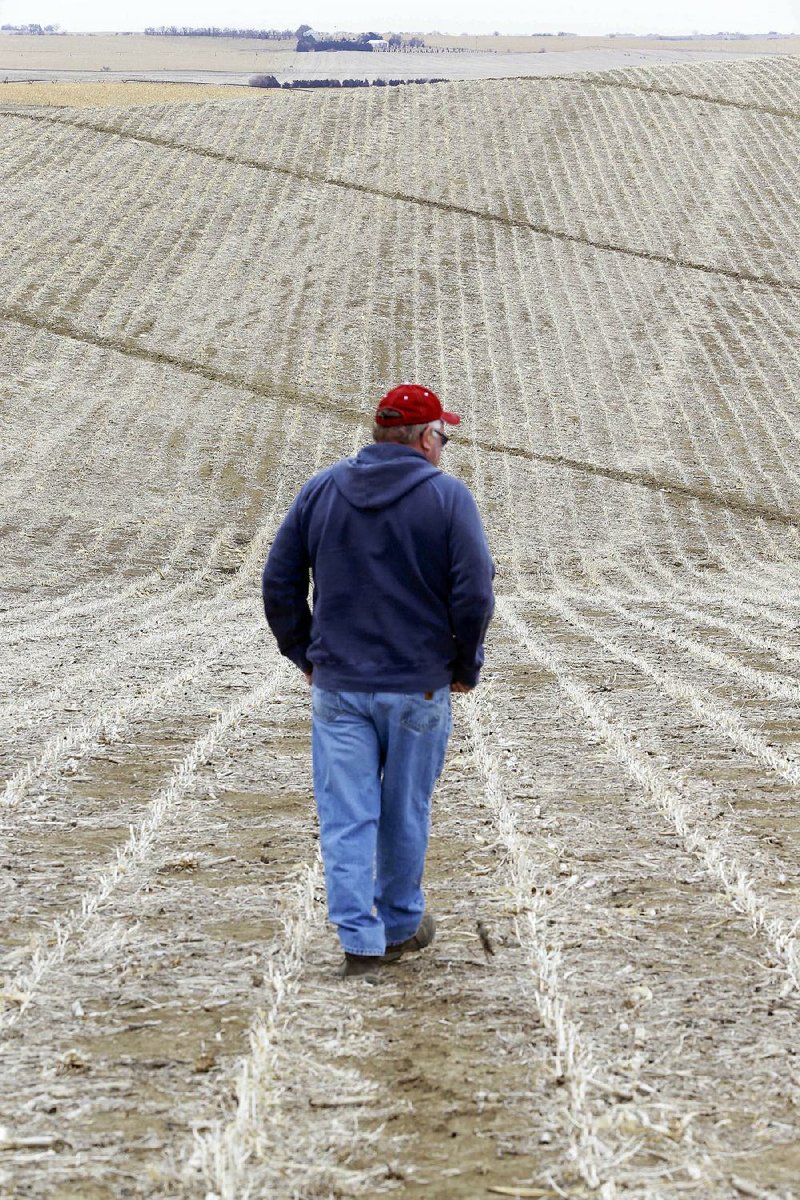LINCOLN, Neb. - If the proposed Keystone XL oil pipeline ever gains approval, Ronald Weber will watch from his farmhouse as workers lay the line beneath a half-mile of his cropland in northeast Nebraska.
The 69-year-old retired farmer, who owns land near Tilden, about 100 miles northwest of Omaha, wishes the pipeline had missed his property, simply to avoid the difficulty of growing corn and soybeans around the construction work. But what leaves Weber exasperated are the repeated project delays.
“It’s ridiculous that we haven’t yet built this thing,” he said. “It would have been nice if they had gone a mile over and missed me, but these kinds of things happen. It has to go through somewhere.”
Weber has plenty of company in Nebraska, a state that has been an impediment to the 1,100-mile-long line almost since it was proposed 10 years ago, but where patience with the struggle seems to be running thin now that the pipeline company has reached financial settlements with three-quarters of the landowners on the route. U.S. Secretary of State John Kerry is expected to decide in the coming months whether to recommend White House approval of the project.
A group of environmental activists and farmers has cast the $5.4 billion pipeline as a threat to the nation’s efforts to curtail global warming, as well as posing a risk to the state’s groundwater and to residents’ property rights.
But many property owners are now waiting with a sense of apathy and resignation, eroding the grass-roots resistance that had long bolstered the opposition. Settlement deals offered by TransCanada, the Canadian company behind the project, can run well into six figures and are providing Nebraska residents with their first share of the oil-boom money that had enriched those in prime drilling areas in other states.
Earlier this month, pipeline supporters sought to isolate opponents even more when they gathered signatures from 34 Nebraska lawmakers - a bipartisan, two-thirds majority - for a letter urging federal approval. Three Democrats signed a letter opposing the project.
Jane Kleeb, director of the anti-pipeline group Bold Nebraska, said local opposition remains alive. She pointed to 115 of the 515 landowners along the proposed route that she said joined the effort to stop it, despite what she described as high-pressure sales tactics by TransCanada.
“For the last three months, it’s been very stressful on the landowners,” she said.
But other landowners say they’re ready for the dispute to end.
“Up here where the pipeline’s going through, the people I’ve talked to don’t have concerns with it,” said Frankie Maughan Jr., who farms near the route in northeast Nebraska. “They just want the money.”
Other states long ago signed off on the line, which would carry 830,000 barrels of oil per day from Alberta, Canada, to Texas Gulf Coast refineries, but nothing has come easy in Nebraska.
First it was complaints that the initial route would have burrowed through the fragile Sandhills region, which sits atop the Ogallala reservoir. After the company made changes, the state approved a new route, but in February a judge sided with pipeline opponents in finding that the wrong state officials approved the plan. The state has appealed the ruling.
Surveys commissioned by the University of Nebraska and independent polling firms have shown that most Nebraska residents support the project. The latest federal environmental impact report also was favorable.
“Once we changed the route, the mood in the state completely changed,” said TransCanada spokesman Shawn Howard.
Local opposition declined as TransCanada’s offers went up. Some landowners have received offers as high as $250,000, with signing bonuses of $60,000 to $80,000, Kleeb said.
Some landowners have refused to settle.
Jim Carlson, 59, who farms near the eastern Nebraska town of Osceola, said he’s turned down two TransCanada offers, including one for $244,000, and is more concerned than ever about chemical additives that could run through the pipe.
“I think a lot of people who have signed so far, especially in the beginning, didn’t know a lot about the pipeline,” Carlson said. “Initially, I thought it would be good for the country, that it would reduce our dependence on foreign oil. But now? They could offer me $344,000 today, and I wouldn’t sign it.”
Business, Pages 74 on 03/23/2014

